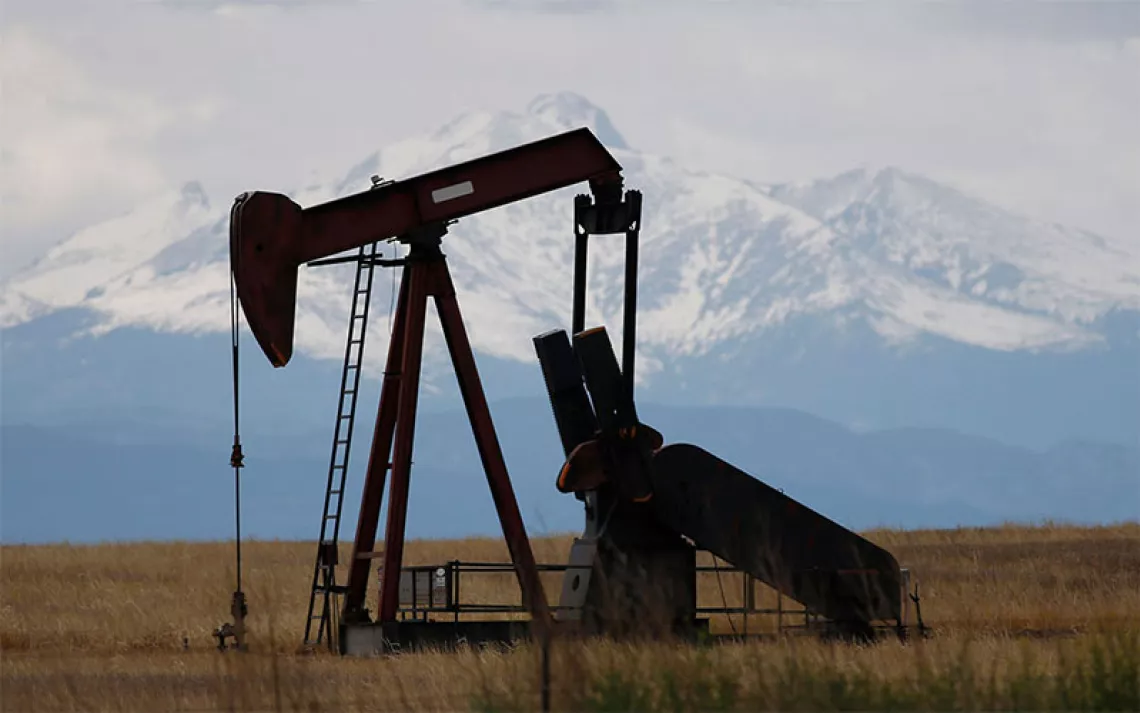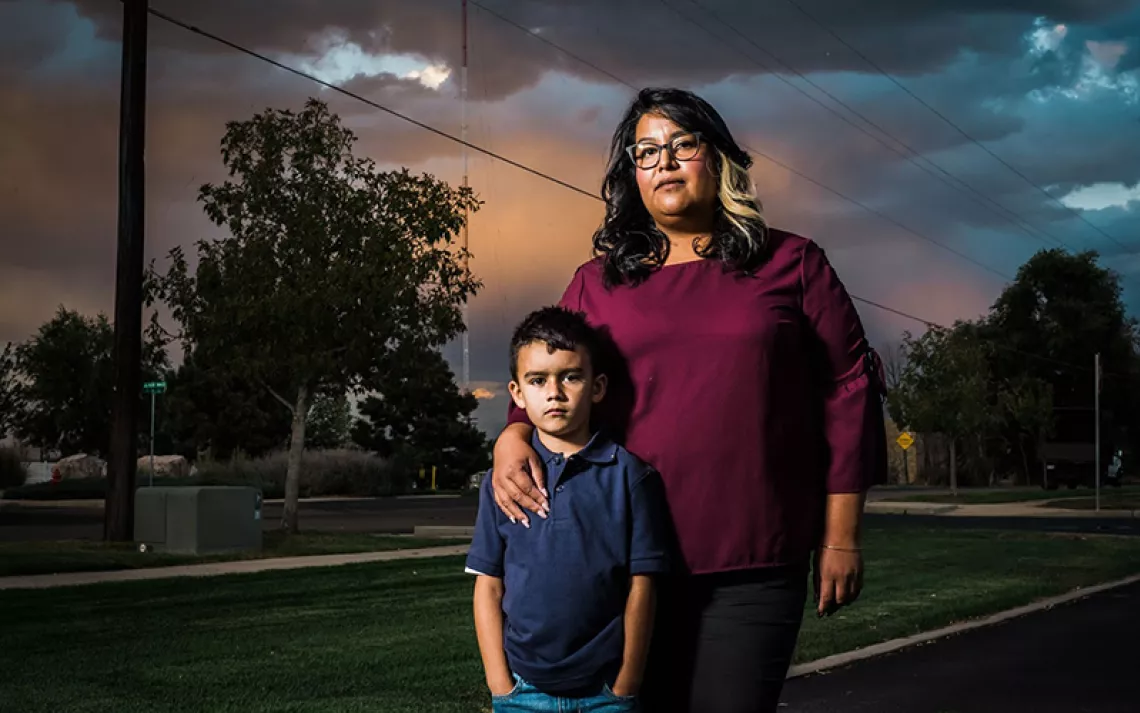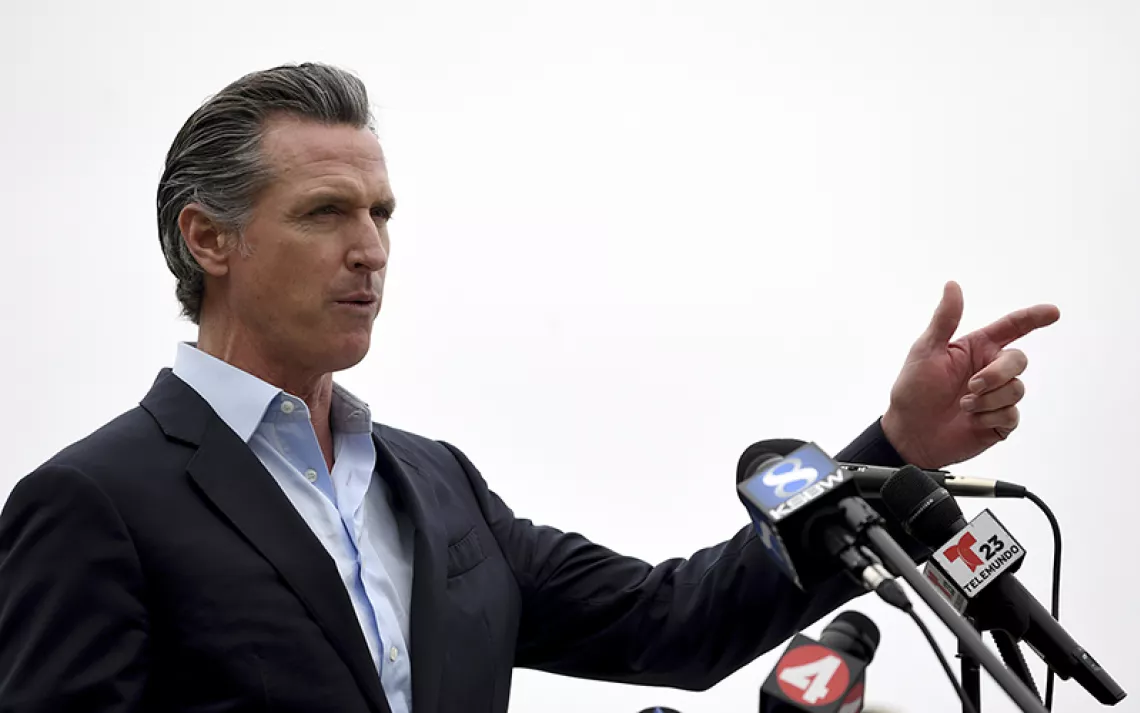The Farmer From “Babe” Just Got Out of Prison for Anti-Fracking Activism
James Cromwell says citizens need to band together and get out into the streets
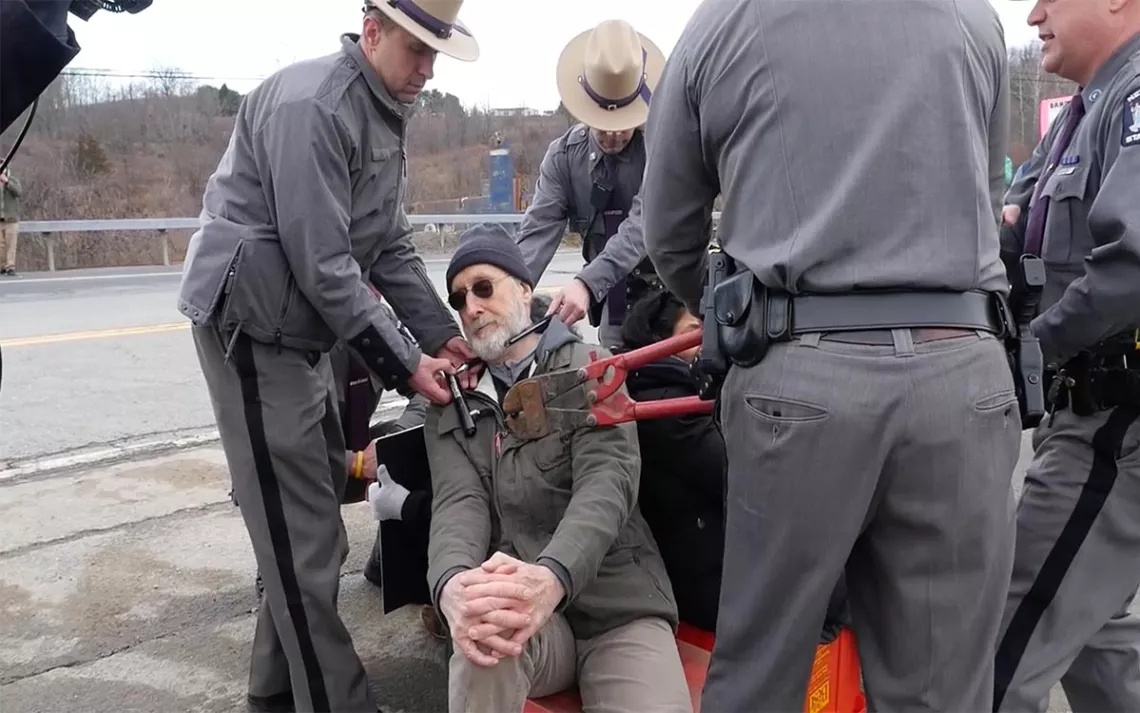
Scene from James Cromwell's arrest in December 2015 | Courtesy of James Cromwell
This week, James Cromwell, the Oscar-nominated actor known for playing the farmer in the talking-pig comedy Babe, was released from prison after finishing a short sentence for anti-fracking civil disobedience. In December 2015, Cromwell and others locked themselves to the construction site of a 650-megawatt gas plant in Wawayanda, New York, to protest fossil fuel extraction. After refusing to pay a fine for the misdemeanor, Cromwell and two others were sentenced to a week in jail.
Cromwell is well known as an activist-actor. He’s an outspoken vegan (how could you not be after hanging out with talking animals?) and in the 1960s was involved in Black Panthers solidarity efforts. The apple didn’t fall far from the tree. Cromwell’s father was a film director during Hollywood’s golden age (Of Human Bondage with Bette Davis was among his credits) until he was blacklisted during the Red Scare.
Although he is among Hollywood’s most outspoken dissidents, Cromwell (Jamie to his friends and family) often plays authority figures, such as Prince Philip in 2006’s The Queen, George H.W. Bush in Oliver Stone’s W., and industrialist Andrew Mellon in HBO’s Boardwalk Empire.
I spoke to Cromwell on Thursday afternoon, just a couple of days after his release from jail in Goshen, New York.
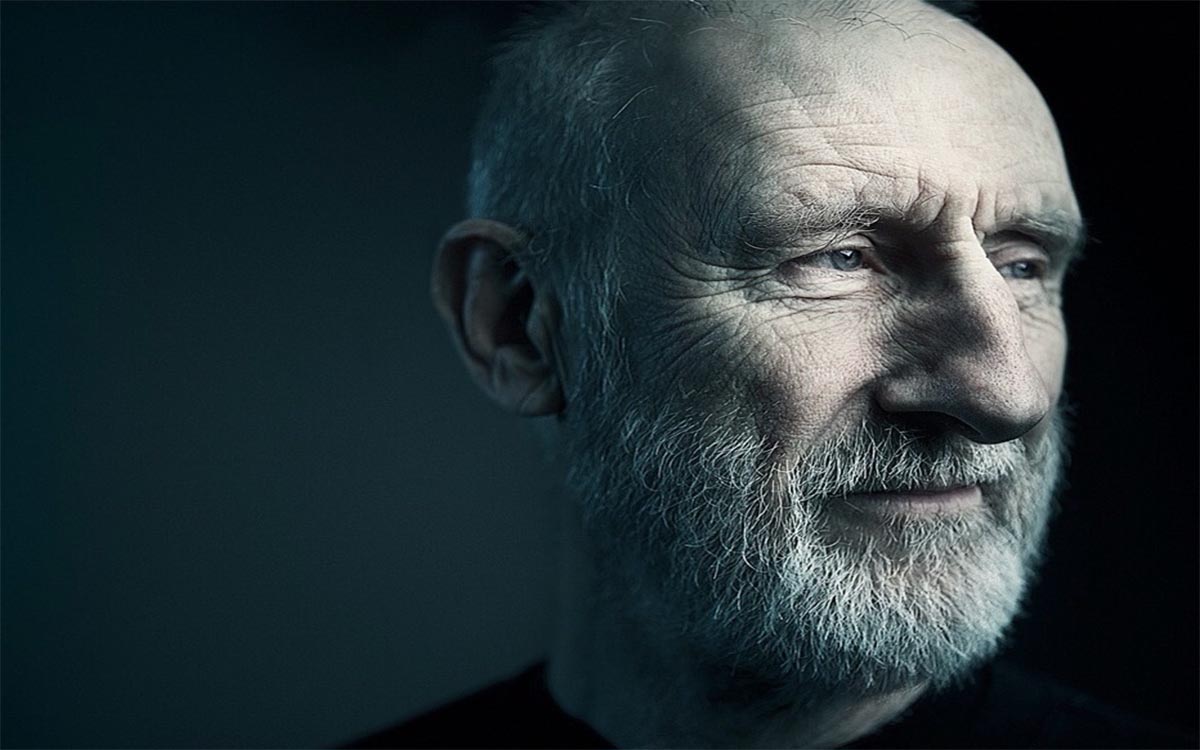
Photo courtesy of Ryan Rogers
*
How are you doing now?
Jamie Cromwell: [Laughs.] Unbowed and unbroken.
How long were you behind bars?
We were sentenced to seven days—and you get time off for good behavior. The reason all three of us are out [early] is because of my celebrity. When you go in, you’re in quarantine for the first three days because of a tuberculosis test to screen out people who have drug resistant tuberculosis. Once the test is negative, you’re introduced into the general population. And if somebody in the general population should have a hard-on—literally and figuratively—about me, [or] take a swing at me, or threaten me and that got out into the media, the institution would look very bad. So the last thing they wanted was a celebrity in the general [prisoner] population. So they let us out as quickly as they could.
I fasted for three days, a water fast. It was a form of protest. It was also a ploy because it gets people’s interest in the media. Because you say to somebody, “We’re going to prison” and they say, “Oh, you’re going to jail.” We were in a prison, not a jail. Not like the thing in Monopoly or Jailhouse Rock. We were in a penal institution, which is very different. The Orange County Correctional Facility.
All of us were in isolation. I probably was a little better treated—in fact, I know I was better treated than the two women who went in with me, Madeline Shaw and Pramilla Malick, one of whom is my age, 77, and the other is a naturalized U.S. citizen, a woman of color, Indian. I got a book and wasn’t hassled. They were hassled and did not have a book. So they spent their three days staring at the walls of their cell, because they were also in isolation.
What did you read?
I asked the librarian for any Shakespeare, and he said, “We don’t have any.” I said, “How about Dostoyevsky? Melville? Styron? Algren? Updike?” He said, “No, we don’t have any.” I said, “What do you got in the library?” He said, “You like Dickens?” I said, “Yeah.” So he brought me The Pickwick Papers. I loved it! I was very well entertained by Mr. Dickens. It’s interesting that much of what Mr. Dickens was talking about in the early 1800s has not changed one iota in the [penal] institutions we subject over 2 million people to in this country, in this day and age.
Like Thoreau, you had the option to pay a fine but went to prison instead. Why?
I couldn’t justify to myself concurring with a judgment from a judge I believe should have recused himself and who listened during the [two-day] trial to two of the most eminent climate scientists in the country, Bob Howarth and Tony Ingraffea of Cornell, and ask not one question about the dire consequences of the building of this 650-megawatt, fracked-gas power plant. When [the judge] made his judgment, he evaluated the breaking of a minor statute of blocking an entrance, impeding traffic, to the inevitable destruction of all sentient life on the planet on the basis that since the plant is not completed, the danger to humanity is not imminent.
In the necessity defense, which is what we pleaded, you must prove there is an imminent threat. But when you’re talking about 10,000 years of irrevocable environmental catastrophe and events, to say that you’re a year away from the commission of this plant, which as Josh Fox, who directed the wonderful documentary Gasland, said, “This is the plant that will publicly put New York underwater.” So I absolutely refused to glorify the stupidity and injustice of his opinion and refused to pay the fine.
How exactly do you believe the Wawayanda plant threatens the environment?
We have something in this country that the state, industry, and corporate media call “natural gas.” It is not natural gas. It is methane, and it is drilled out of the shale fields all over this country. They extract methane, at dire cost to the water, the air, and the quality of life of the people. This gas, which is 86 times more potent than CO2, is transported by pipeline, in which there are many, many leaks at every joint. Humans don’t do anything perfectly, and there are numerous examples that the gas company is incredibly slack and under-regulated in the meticulousness with which they join these pipes together. They travel through this infrastructure to metering and compressor stations—which compress the gas and drive it farther through the pipe and to pigging stations, where they release a machine into the pipeline to clean out the crap that accumulates on the walls of the pipe. The crap is then spit out into the environment. Then this gas travels to this power plant and is combusted to make energy from the two 275-foot smokestacks. This plant emits 4.6 million tons of greenhouse gases per year, once it goes online. This is over 10 percent of all the greenhouse gases emitted by the energy sector in New York.
The gas to run that plant is fracked in Pennsylvania. To run the Competitive Power Ventures—a plant owned by Mitsubishi, GE, and Credit Suisse purely for profit—it has to be supplied by 150 fracked wells in eastern Pennsylvania (mainly near the town of Dimock) every year for the 40 years of its existence. So roughly 1,500 wells over the lifetime of this plant—with all the methane that escapes during the process, that’s basically a death knell for humankind on this planet.
This plant is the result of corruption in the entire process of licensing and regulating plants of this nature without the concurrence of the local community—especially communities of color— who will be the most impacted, and they have no voice. In fact, citizens in this day and age have no voice in this country. Unless they band together and go out on the streets.
Describe the act of civil disobedience you committed outside the plant in December 2015?
We locked ourselves together with bicycle locks and blocked the entrance to the plant. We blocked it for 27 minutes or so. We were about 100 demonstrators, but there were only six of us that did the action. Three of us locked ourselves together, and three people linked arms.
We had a weekly picket [at the construction site], which I had attended numerous times. And I demonstrated in Albany to try and get the attention mostly of Governor Cuomo, who has it within his authority the ability to stop this project by denying the final water permit for the lateral pipeline that will bring the gas to the plant. We are exhorting everybody in New York to call the governor and write their representatives and say we must not allow this plant to go online, because it is the precursor for more to be built all over this country. And that will mean goodbye to the human experiment.
What other environmental causes are important to you?
I oppose animal agriculture. Environmentalists are deeply and righteously concerned with greenhouse gases and their effect on the climate, and how to produce energy in a responsible way that won’t condemn humanity to extinction, and animal agriculture produces more methane than the entire transportation sector in America.
I am a vegan and have been since 1994. My veganism grew out of making the movie Babe. My vegetarianism grew out of driving my motorcycle through the stockyards in Texas for an entire day. With animals in pens for as far as the eye could see, smelling the stench, listening to their cries, beholding a sight that looked like Armageddon, and I thought, “I can’t be a part of this.”
I went to Standing Rock for about a week, but I was not arrested. People were not acting alone; they were acting under the agenda of the indigenous people of Standing Rock. I was also in Washington for the Women’s March, and my hotel happened to be right in the middle of the place where the anarchists decided to test the patience of the police by destroying public property. It was like the [street fighting] in Ukraine.
The revolution starts in every heart.
 The Magazine of The Sierra Club
The Magazine of The Sierra Club
